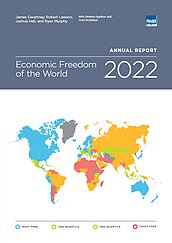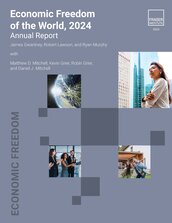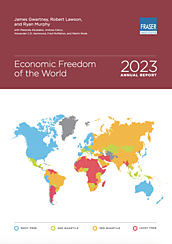This is the 26th edition of Economic Freedom of the World and this year’s publication ranks 165 countries and territories for 2020, the most recent year for which data are available. Global economic freedom declined significantly in the wake of the coronavirus pandemic. The decline affected 146 of 165 jurisdictions in the index and is more than three times larger than the global decline caused by the 2008/2009 financial crisis.
Economic Freedom of the World
Economic Freedom of the World




